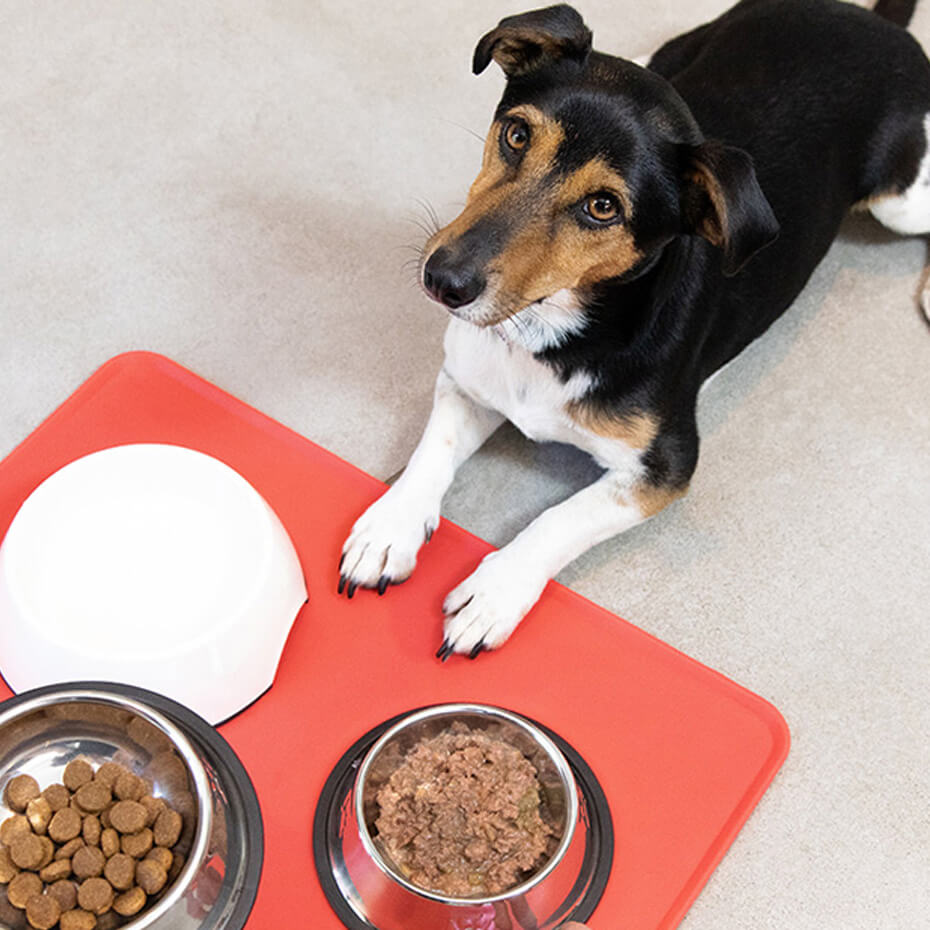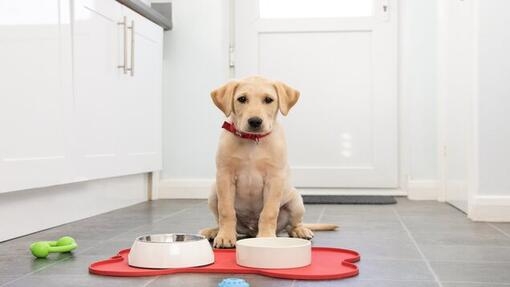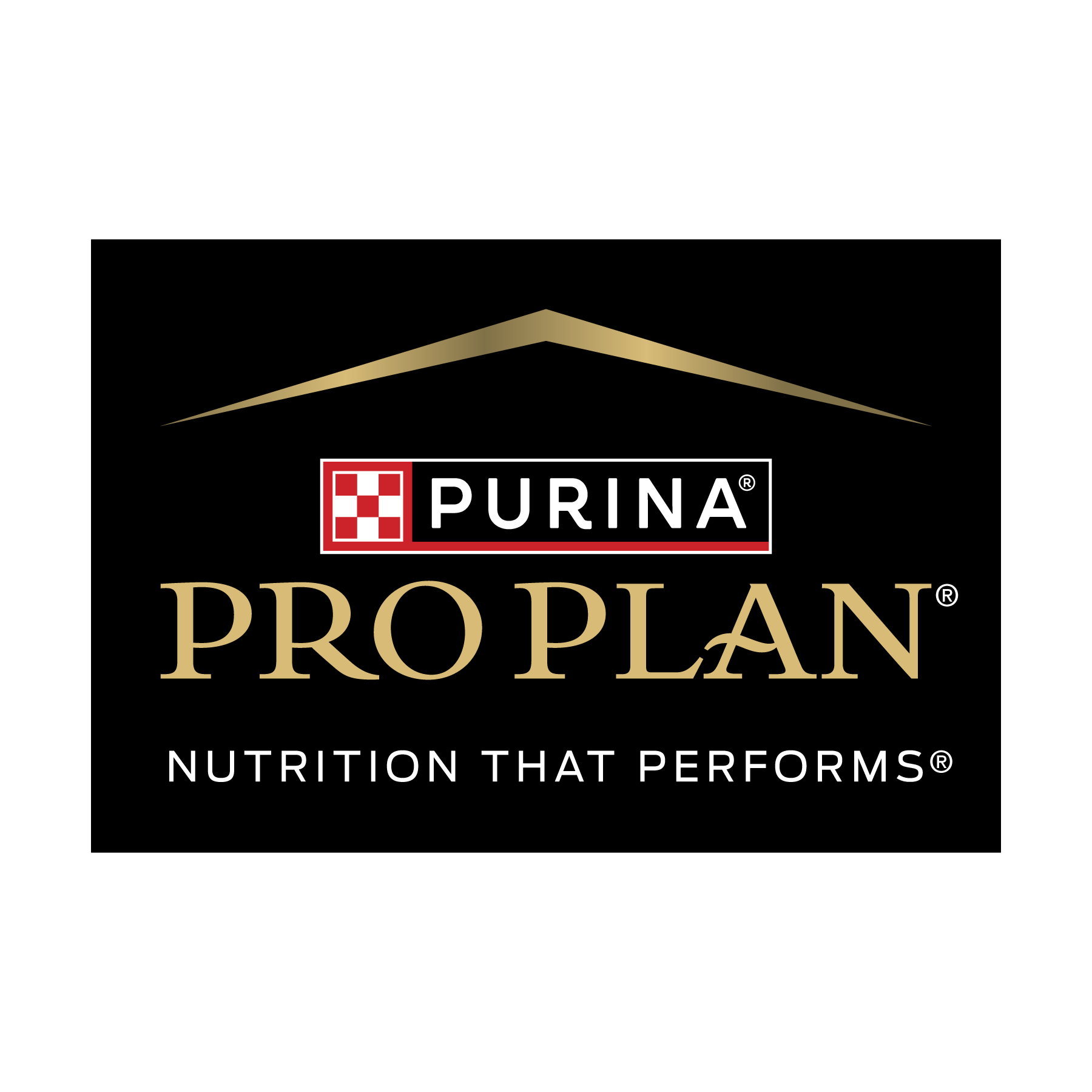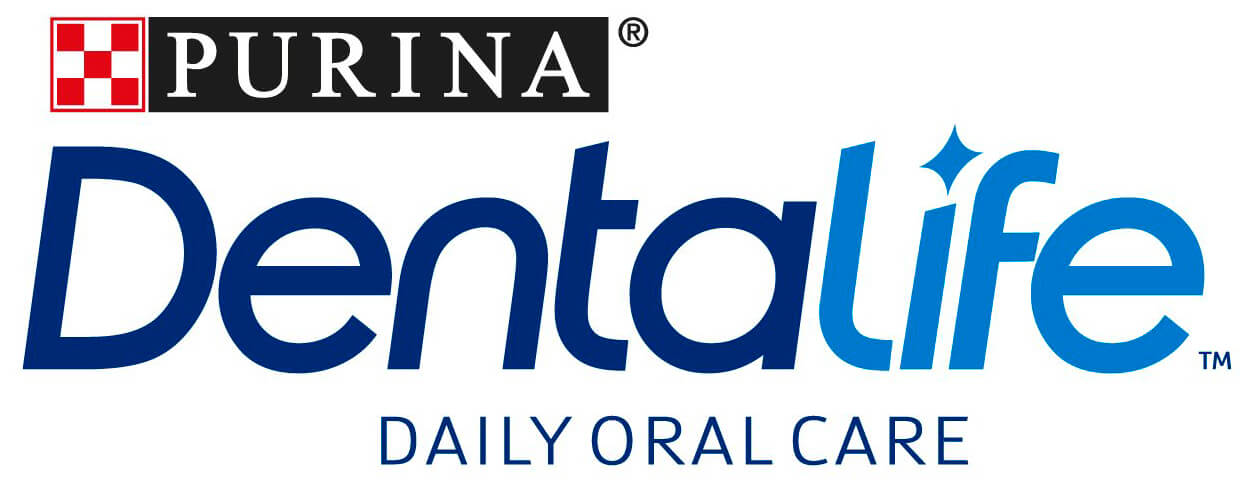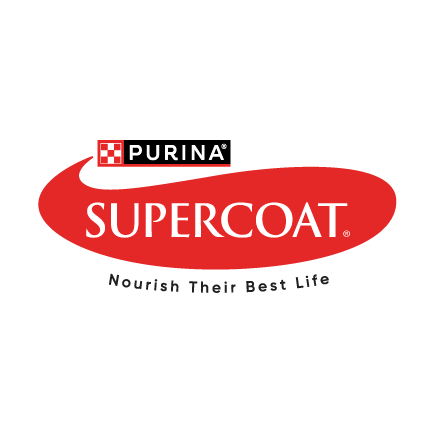
There are many common foods that dogs can’t eat and non-food substances, including plants, which are potentially poisonous. Some of these you’ll know, while others might come as a surprise.
Many foods, medicines and plants which are safe for humans, can be toxic to our pets. In fact, some common household items can be life-threatening for dogs.
We’ve put together this comprehensive guide so you can learn about poisonous foods for dogs, which plants to avoid and what chemicals to always keep out of reach of your four-legged friend. Some of the items on this list may surprise you!
What foods can't dogs eat?
We all love to treat our pups to the occasional treat! While some human foods are fine in moderation, others should be avoided entirely. Harmful foods for dogs include:
Certain fruits and vegetables
Many fruits and vegetables are fine for dogs to eat in small quantities, but can pose a choking hazard if they're not cut into small pieces and fed under supervision. However, the following foods should be avoided, and can be very toxic, even in small amounts:
- Raisins.
- Sultanas.
- Grapes.
- Onions.
- Garlic.
- Some kinds of wild mushrooms.
Other plants that can cause toxicity in dogs when eaten in large quantities include:
- Rhubarb (mainly leaves).
- Potato leaves and stems.
- Tomato leaves and stems.
- Apple seeds, Cherry pits, Apricot pits, Peach pits, present a small risk only but can cause obstructions in the digestive system.
Other potentially harmful foods for dogs
- Macadamia nuts.
- Walnuts.
- Chocolate.
- Coffee.
- Tea.
- Alcohol.
- Xylitol – often found in certain types of peanut butter and chewing gum.
- Bread dough.
Which chemicals are bad for your dog?
There are a range of substances around your home that could harm your dog, so it’s important to know what these are so you can keep your pet away.
Many cleaning products are bad for your dog, so keep them behind a closed door and fit child locks if you have a particularly curious dog. Some chemicals may cause a mild stomach upset, while others could cause severe burns of the tongue, mouth and stomach, or even be fatal.
Pest control products can be extremely dangerous. For example, some types of rat poison can lead to severe bleeding and anaemia in dogs. Therefore, if you’re using rat or mouse baits, ant or cockroach traps, or snail and slug baits around your home or garden, place the products in areas that your dog can’t get to.
Never give your dog any medications unless they have been prescribed or recommended by your vet. Human medication can be dangerous to dogs, even in small doses. These include: ibuprofen and other pain killers, cold medicines, anti-cancer drugs, anti-depressants, vitamins, herbal remedies and diet pills. Keep all drugs out of your dog’s reach, preferably in a closed cabinet.
There are many common household items that can be potentially dangerous to dogs, even in low quantities. Some of these are toxic, while others can cause gastrointestinal obstructions. These include: pennies (high concentration of zinc), mothballs, potpourri oils, fabric softener sheets, automatic dish detergents (contain cationic detergents which could cause corrosive lesions), batteries (contain acids or alkali which can also cause corrosive lesions), homemade play dough (contains high quantities of salt), winter heat source agents like hand or foot warmers (contain high levels of iron), cigarettes, ground coffee and alcoholic drinks.
Car products such as oil, gasoline and antifreeze should be stored properly, somewhere your dog can’t get their paws on them. In particular, be careful about antifreeze (ethylene glycol) as this can be attractive to dogs and is deadly if ingested. In winter, be extra cautious as some people use antifreeze on their paths or spill it on the ground when filling their engine’s cooling system. It’s a good idea to wash your dog’s feet after a walk in case they lick their paws.
Always follow veterinary and manufacturer advice when applying flea and tick products to your pet. Never give products that have been prescribed for a different pet or species, and make sure to administer the correct dose. An overdose can be linked to neurological symptoms including seizures, and certain medications can be lethal if applied to the wrong species.
Read all product information thoroughly and follow the instructions closely. If you’re in any doubt, contact the manufacturer or your vet to clarify the directions before using it. The same applies to house sprays – read the instructions carefully and remove all pets from the area for the time period specified on the container.
If you’re treating your lawn or garden with fertilisers, herbicides, or insecticides, always follow the manufacturer’s instructions carefully and keep your dog away from the treated area. This will be at least until the product is completely dry, but in some instances a longer period of time is necessary. Store these products safely away from your dog’s reach.
Take care if you’re using any household products that could contain potentially health-threatening pollutants such as cleaning agents, pesticides, paints and varnishes. Also be aware of any microbial and fungal agents found in air conditioners, air ducts, filters and humidifiers. Keep your dog away from the area where the pollutants are and provide plenty of ventilation. Lead-based paint, linoleum and caulking compounds should all be removed with extreme caution, due to their lead content, and must always be cleaned up thoroughly afterwards. Contact your vet immediately if your dog shows any signs of ingestion including: vomiting, diarrhoea or constipation, loss of appetite, muscle co-ordination, blindness or seizures.
Poisonous plants for dogs
The following is a list of poisonous plants for dogs, so keep a watchful eye on your dog if you have any of them around your home or garden, and consider whether you should remove them.
The list isn’t exhaustive, but you can find more information at The Veterinary Poisons Information Service (VPIS). Although the VPIS only handles direct enquiries from vets (not pet owners), its website does provide some useful information.
- Aloe Vera.
- Apple (seeds).
- Apricot (pit).
- Autumn Crocus.
- Cherry (seeds and wilting leaves).
- Daffodil.
- Easter Lily.
- Elephant Ears.
- English Ivy, Poison Ivy, Devil's Ivy and other ivies.
- Foxglove.
- Geranium.
- Marijuana.
- Narcissus.
- Oleander.
- Oriental Lily.
- Peach (wilting leaves and pits).
- Primrose.
- Rhododendron.
- Tomato Plant (green fruit, stem and leaves).
- Yew.
- Amaryllis.
- Azalea.
- Bird of Paradise.
- Clematis.
- Cyclamen.
- Eucalyptus.
- Indian Rubber Plant.
- Lily of the Valley.
- Mistletoe.
- Nightshade.
- Onion.
- Peace Lily.
- Poinsettia (low toxicity).
- Swiss Cheese Plant.
- Tiger Lily.
- Weeping Fig.
If you have any concerns that your dog may have ingested poisonous plants, toxic foods or anything else that is potentially harmful, you should always speak with your vet as soon as possible to obtain advice and guidance.

